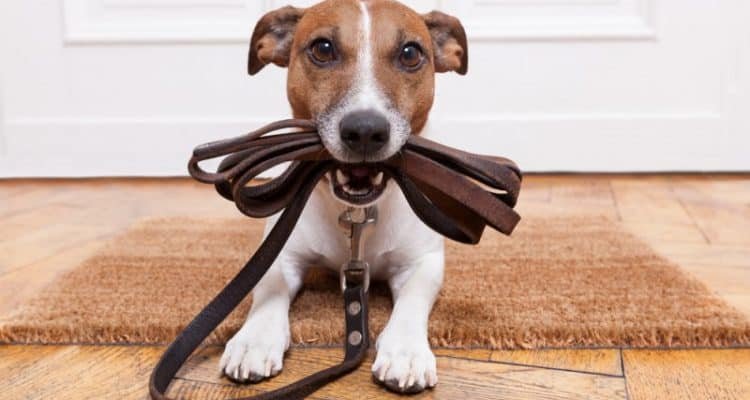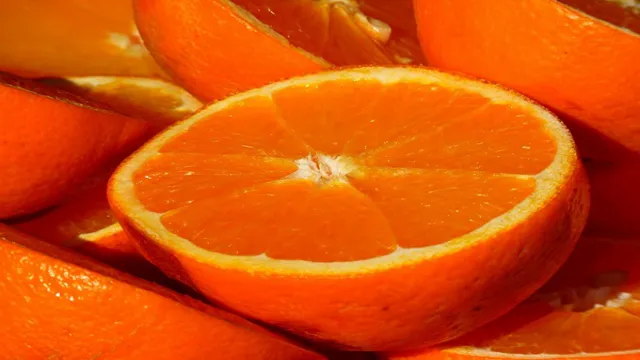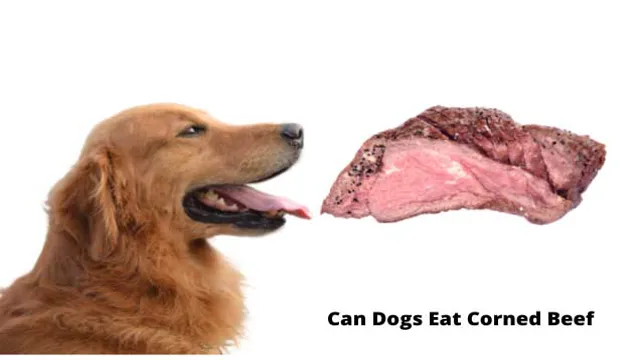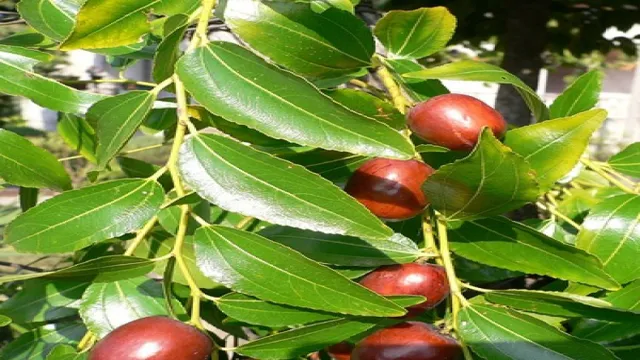Can Dogs Safely Eat With Kennel Cough? A Guide for Dog Owners

Are you worried about your beloved pup’s health and wondering whether he can eat when he has kennel cough? We understand your concern and are here to help! Kennel cough is a highly contagious respiratory infection in dogs, but the good news is that it is usually not serious and can be treated. In this blog, we’ll explore the answer to the question, “Can dogs eat with kennel cough?” so that you can make sure your furry friend is getting the nutrition he needs while he’s recovering.
What is Kennel Cough?
Kennel cough is a common and highly contagious respiratory illness that affects dogs. It’s caused by a combination of bacteria and viruses, including Bordetella bronchiseptica, Canine Parainfluenza Virus, and Canine Adenovirus Type Symptoms of kennel cough can include a dry, hacking cough, sneezing, and a runny nose. The coughing can be quite severe in some cases and may last for several weeks. If left untreated, kennel cough can lead to more serious respiratory illnesses, such as pneumonia.
Fortunately, kennel cough is usually easy to treat and can be prevented with proper vaccinations. Vaccinating your pet against kennel cough is one of the best ways to keep them safe from this illness. The good news is that kennel cough doesn’t usually affect a dog’s appetite. Dogs with kennel cough can still eat the same food as normal. However, it’s important to keep an eye on your pet and make sure they are eating and drinking enough to get the nutrients they need.
If your pet is showing signs of kennel cough, it’s important to take them to the vet as soon as possible. Your vet can diagnose kennel cough and provide treatment to help your pet get back to feeling better. Although kennel cough can be a scary and uncomfortable illness, it’s important to remember that it’s generally not life-threatening. With proper care and treatment, your pet can recover quickly and go back to being their playful, happy self in no time.
Causes
Kennel cough, a common respiratory disease in dogs, can have serious consequences if not treated in a timely manner. While the disease itself is highly contagious, there are certain precautions you can take to keep your pup safe. One of the most important is to be mindful of what your pup eats, as certain foods can worsen the symptoms of kennel cough. While a healthy, balanced diet is always recommended for your dog, you should avoid giving them any food that may be too rich, fatty, or sugary, as this could make the symptoms worse. Additionally, it is important to avoid giving your pup treats that contain artificial ingredients, as these have been known to irritate the throat and lungs.
Lastly, if your dog has been diagnosed with kennel cough, it is best to avoid feeding them raw food, as this could further exacerbate the symptoms.
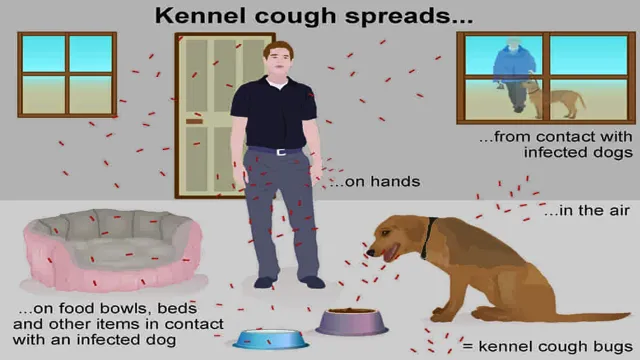
Symptoms
Kennel cough is a highly contagious respiratory infection in dogs that is caused by a variety of viruses and bacteria. While it can be an uncomfortable and even serious condition, it is not fatal in most cases and can typically be treated with antibiotics and rest. Unfortunately, one of the most common questions pet owners have is whether or not their furry friends can eat while they are suffering from kennel cough. The answer is not as straightforward as one might think. In most cases, it is safe for dogs with kennel cough to eat their regular diet.
However, it is important to check with your veterinarian first to make sure that your particular dog is not at risk for complications. If your vet determines that it is safe for your pet to eat, then your pup should be able to enjoy their regular meals. However, it is important to provide small, manageable portions to help reduce the strain on their respiratory system. Additionally, it is important to make sure that the food is moist and not dry to make it easier for them to swallow. Ultimately, the decision to allow your pup to eat while they are suffering from kennel cough should be made in consultation with your veterinarian.
Depending on the severity of the infection, your vet may recommend specific dietary restrictions or even an entirely different diet for your pup. By following your vet’s advice, you can ensure that your pup is getting the nutrition they need to recover quickly and comfortably.
Can Dogs Eat with Kennel Cough?
Dogs are known for their love of food, and many pet owners often wonder if their canine companions can eat with kennel cough. The answer is not as simple as yes or no, as the answer can depend on the severity of the kennel cough and the type of food that is being offered. Kennel cough, also known as canine infectious tracheobronchitis, is a canine upper respiratory illness that is caused by a combination of bacteria and viruses. It is highly contagious and can easily spread from one dog to another through direct contact or even through the air. Dogs with kennel cough often have a dry, hacking cough, sneezing, nasal discharge, and fever.
In general, veterinarians advise against feeding a dog with kennel cough. This is because the coughing can cause food or other ingested materials to be inhaled or aspirated into the lungs, which can lead to severe respiratory infections. For this reason, it is best to limit the amount of food that is given to a dog with kennel cough and to refrain from giving him any type of food that is considered to be a choking hazard. In some cases, a veterinarian may recommend a bland, easily digestible diet for a dog with kennel cough. This type of food is typically high in carbohydrates and low in fat, and can be beneficial in helping to soothe the throat and reduce the coughing.
However, it is important to note that this type of food should only be given to a dog with kennel cough on the advice of a vet. Ultimately, the best way to ensure that a dog with kennel cough is getting the nutrition he needs is to feed him a balanced, nutritious diet and give him plenty of rest and water. If you have any concerns about your pet’s health, it is always best to consult your veterinarian.
Treatment
When it comes to canine health and nutrition, one of the most important questions to ask is: “Can dogs eat with kennel cough?” The answer is a resounding no. Kennel cough is a highly contagious respiratory illness that can spread quickly between dogs living in close quarters, such as kennels or shelters. Feeding a dog with kennel cough can lead to further spread of the disease and can make the symptoms worse. Instead, it is important to provide the infected dog with a balanced diet, appropriate medication, and plenty of rest. Doing so will help the dog recover quickly and prevent the spread of the disease to other dogs.
Foods to Avoid
It’s important to be aware that certain foods can be detrimental to your pup when they have kennel cough. While kennel cough is generally mild, it can still weaken the immune system and make them vulnerable to other illnesses, so it’s important to ensure they’re eating the right food. Therefore, it’s best to avoid giving your pup anything with a lot of sugar or fat, such as cakes, chips, fried food, and candy. Additionally, it’s also best to avoid giving them any raw meat, as this could contain bacteria that could further aggravate their condition. While kennel cough should pass in a few weeks, it’s important to ensure your pup is eating a healthy diet while they are suffering from it.
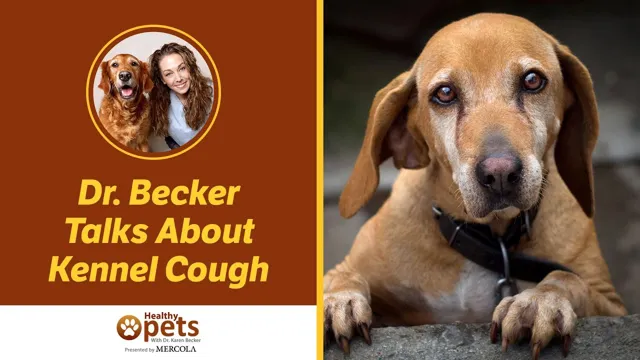
Safe Foods
Are you wondering if you can safely feed your pup with kennel cough? The answer is yes! While nutrition is an important part of helping your pup heal from kennel cough, there are certain foods that are safe for them to eat. Lean proteins and healthy fats are the best sources of nutrition for your pup, and can help them recover quickly. Examples of safe foods to feed your pup with kennel cough include cooked lean meats, fish, eggs, and cooked vegetables. Be sure to avoid any raw or undercooked meats, as these can contain bacteria that can make your pup sick. Additionally, avoid feeding your pup processed foods and high-fat treats, as these can worsen their kennel cough symptoms.
With the right diet and regular vet visits, your pup will be back to their happy, healthy self in no time!
Conclusion
No, dogs should not eat with kennel cough! While kennel cough is not necessarily contagious through food, it is a highly contagious respiratory infection, and it is best to keep your pup away from other dogs and any potential sources of the virus. Keep in mind that the best way to prevent kennel cough is through the regular vaccination of your dog, so make sure you stay up to date with those!”
FAQs
Can dogs eat when they have kennel cough?
No, it is not recommended for dogs to eat when they have kennel cough as it can worsen their symptoms.
Is kennel cough contagious to humans?
No, kennel cough is not contagious to humans, but it is highly contagious among dogs.
How is kennel cough spread among dogs?
Kennel cough is spread through direct contact or contact with contaminated objects, such as food and water dishes.
What are the symptoms of kennel cough in dogs?
The symptoms of kennel cough in dogs include a persistent dry cough, nasal discharge, sneezing, and difficulty breathing.
What is the best way to prevent kennel cough?
The best way to prevent kennel cough is to keep your dog’s vaccinations up to date and to avoid taking them to places where there are large numbers of other dogs.
How is kennel cough treated in dogs?
Kennel cough is typically treated with antibiotics and cough suppressants. In more severe cases, oxygen therapy or IV fluids may be necessary.
